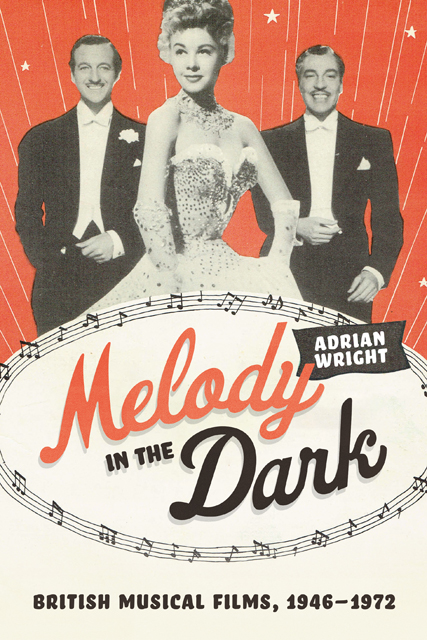Book contents
- Frontmatter
- Dedication
- Contents
- List of Illustrations
- Preface and Acknowledgements
- 1945 (from May 1945)
- 1946
- 1947
- 1948
- 1949
- 1950
- 1951
- 1952
- 1953
- 1954
- 1955
- 1956
- 1957
- 1958
- 1959
- 1960
- 1961
- 1962
- 1963
- 1964
- 1965
- 1966
- 1967
- 1968
- 1969
- 1970
- 1972
- Notes to the Text
- Select Bibliography
- Index of Film Titles
- General Index
- Frontmatter
- Dedication
- Contents
- List of Illustrations
- Preface and Acknowledgements
- 1945 (from May 1945)
- 1946
- 1947
- 1948
- 1949
- 1950
- 1951
- 1952
- 1953
- 1954
- 1955
- 1956
- 1957
- 1958
- 1959
- 1960
- 1961
- 1962
- 1963
- 1964
- 1965
- 1966
- 1967
- 1968
- 1969
- 1970
- 1972
- Notes to the Text
- Select Bibliography
- Index of Film Titles
- General Index
Summary
Audiences of the day would have been unaware of the performers’ emotional complications
Old Mother Riley at HomeOld Mother Riley at Home
Sweethearts for Ever
Here Comes the Sun
What Do We Do Now?
May
Already an experienced director of the often-shambolic Arthur Lucan comedies, with MP and Overseas behind him, Oswald Mitchell was rehired for British National’s Old Mother Riley at Home, produced by Louis H. Jackson and filmed in December 1944. The last of the wartime series before Lucan and Kitty McShane returned four years later with Old Mother Riley’s New Venture, Mitchell and George Cooper’s screenplay, with ‘original story and dialogue’ by Joan Butler, made no reference to the conflict that Britain had been enduring since 1939 beyond the appearance of some land-girls turning hay as Kitty and boyfriend Bill (Willer Neal in highly unsuitable correspondent shoes) stroll through an unconvincing countryside singing Percival Mackey and Donald O’Keefe’s ‘Let’s Pretend We’re Sweethearts’. Lucan’s biographer understandably labels this ‘a particularly nauseating duet between the “young lovers” […] The lovers in question were fifty-two and forty-eight years old.’
Neal had previously played in Overseas billed as Billy Breach. The Monthly Film Bulletin (MFB) decided that Neal ‘must, one feels, have been chosen for the part on the strength of a moderately tuneful singing voice rather than for any pronounced acting ability’. In fact, Neal had long been Kitty’s on-stage and off-stage boyfriend; the triangular relationship between Arthur, Kitty, and Neal would persist until Arthur’s death. Audiences of the day would have been unaware of the performers’ emotional complications; now, the complexity lends a certain prurience to what we have on screen. O’Keefe and Mackey also contribute the rousingly jolly ‘Cheer Up and Smile If You’re Feeling Blue’, performed by Kitty with her customary blankness and total lack of cinematic technique.
November
To herald the dawn of a new post-war era for the British musical film, direct from the bargain basement came the ‘spectacularly untalented’ American writer-director Frankland Atwood Richardson, who ‘perpetrated some of the most incompetent quickies of the 1930s’.
Richardson was responsible for the 1932 Don’t Be a Dummy and a steady supply of hastily assembled entertainments such as the 1945 Cabaret, and 1946 Amateur Night featuring the Borstal Boys and the grotesque gurning of comedian Ernest Sefton.
- Type
- Chapter
- Information
- Melody in the DarkBritish Musical Films, 1946-1972, pp. 1 - 4Publisher: Boydell & BrewerPrint publication year: 2023



